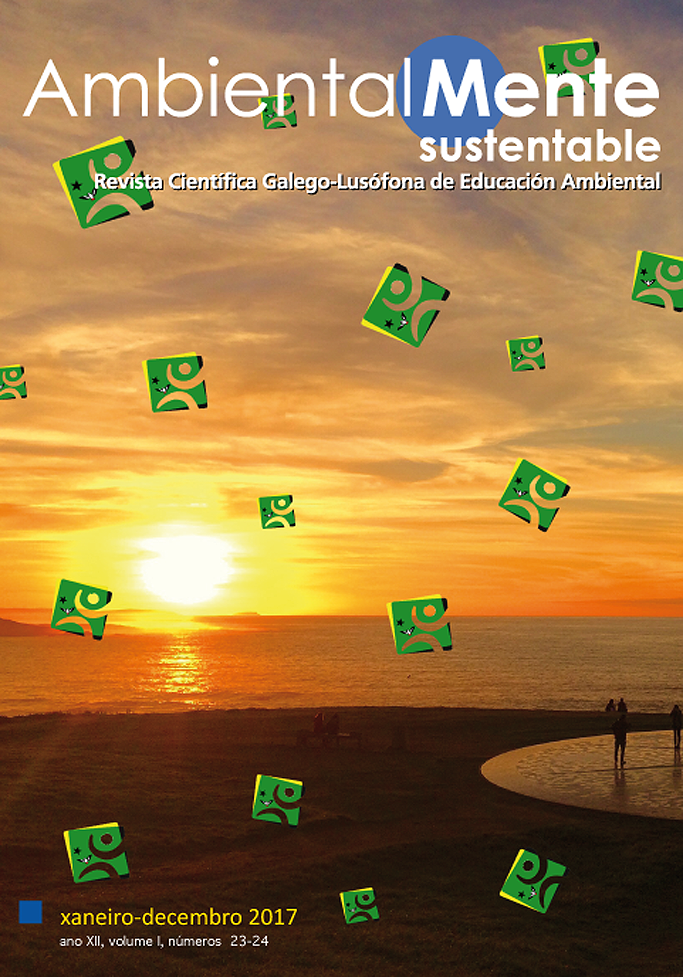Vol. 23 N.º 1 (2017)

A Rede Lusófona de Educação Ambiental (Redeluso) foi fundada no ano de 2005, em Portugal, durante as jornadas da Associação Portuguesa de Educação Ambiental (ASPEA). Em 2006 alguns de seus membros se reuniram pela primeira vez de forma presencial em Joinville, Brasil, durante o V Congresso Ibero-americano de Educação Ambiental. Neste evento, decidimos realizar congressos periódicos, que teve a cronologia:
2007 – Santiago de Compostela, Galícia
2013 – Cuiabá, MT, Brasil
2015 – Torreira, Murtosa, Portugal
2017 – Ilha do Príncipe, São Tomé e Príncipe
Em todos os eventos, fizemos esforços para ter a presença de participantes oriundos dos oito países falantes da língua portuguesa: Angola, Brasil, Cabo Verde, Guiné Bissau, Moçambique, Portugal, São Tomé e Príncipe e Timor Leste. Além disso, tentamos garantir localidades de identidade lusófona, como a Galícia ou Hong Kong.
O próximo evento está planejado para ser concretizada em Guiné Bissau, no ano de 2019. Nossa esperança era reunir pessoas com identidade idiomática semelhante, capazes de sentir, pensar e fazer educação ambiental em nossas próprias línguas, jeitos, hábitos e cultura. Reconhecemos de que a identidade não é fixa, é mutante conforme nossa cultura se dinamiza, e não se confina às regras gramaticais ou ortográficas, senão a um mosaico de redes e fios na tessitura de novas organizações e rearranjos etnográficos.
Assim também é a proposta da Revista AmbientalMente Sustentable (AMS), que tem a Araceli Serantes-Pazos e o Carlos Vales-Vázquez como editores chefes bastante talentosos em criar e manter a revista. Agregando muitas experiências e tornando-se referência mundial no campo da educação ambiental, a AMS abriu suas portas para acolher os registros dos conhecimentos produzidos durante o IV Congresso Internacional de Educação Ambiental dos países e comunidades da língua portuguesa, que aconteceu em 2017, na Ilha do Príncipe, em São Tomé e Príncipe. Assim, este número especial conta cunha Comissão de Consultores da Universidade Federal do Mato Grosso, ad hoc.

